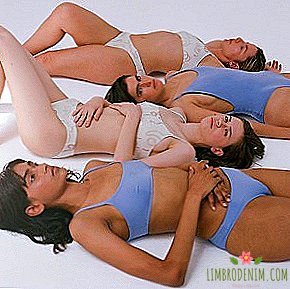10 Nobel laureates who changed the world
This year's Nobel Prize in Literature became a writer and publicist Svetlana Alexievich. For the first time the award went to a citizen of Belarus writing in Russian. Last week awards ceremonies took place in Stockholm and Oslo. On this occasion, we decided to recall another ten amazing women who won the award and forever changed the world. Of the 47 laureates in the history of Nobel’s existence, of course, everyone deserves a mention, however, omitting the great storyteller Selma Lagerlöf, the strongest physicist Maria Goeppert-Meier, a fighter for the rights of the indigenous population of Guatemala Rigoberta Menchu, we focused on ten women, each of whom is out of the ordinary even among Nobel laureates.
Marie Curie
1903 - physics, 1911 - chemistry, Poland and France
The whole life of Marie Curie is an ideal material for an Oscar-winning biopic: it has a place to fight for your own education, love, war, and family values. Born Maria Sklodovskaya became a symbol of scientific knowledge: the only woman who twice won the Nobel Prize, and even the only Nobel Prize winner in two scientific disciplines.
Among other things, the Nobel laureate was not only her husband Pierre Curie, but also the daughter Irene Joliot-Curie (1935). The whole family was engaged in the study of properties and the application of the elements found by them of radium and polonium, named after the birthplace of Mary, Poland. Imagine today without knowledge of radioactive substances and their use, including in medicine, it is impossible, but for this gift to humanity (Marie Curie and coined the term "radioactivity"), the family of a great scientist paid with health and lives.


Jane addams
1931 - Peace Prize, USA
Jane Addams, president of the International Women's League for Peace and Freedom, became the first American woman to receive the Nobel Prize. She received her at an old age, four years before her death, when the results of her activities for many years were indisputable. Addams, one of the leaders of the suffragist movement, fought inequality in all its manifestations. She created the first US charity center and a shelter Hull House to help the families of European immigrants.
In the center there were a nursery, a kindergarten, a communal kitchen, and various courses; medical and legal assistance was provided to the poor and immigrants. Addams held important positions in Chicago, and in 1910 she became the first American woman to receive an honorary doctorate from Yale University. She fought for the right to vote for women, and for the social health system - for all that we now call Western values - and did it successfully.
Dorothy Crowfoot-Hodgkin
1964 - chemistry, UK
Looking at the animated kinesin molecule, which has become the meme of the week, it is difficult to imagine that our understanding of the microworld is a relatively recent result of tremendous work and dozens of years of scientific research. Much credit goes to the fact that we can "see", that is, adequately imagine the structure of molecules, belongs to Dorothy Crowfoot-Hodgkin.
Crowfoot Hodgkin is a rare example of a scientist who has lived a long and active life despite a severe physical ailment: for 24 years she has suffered from a severe form of rheumatoid arthritis. A talented chemist brought to a new level the study of complex biologically active compounds. It is for many years of work on the X-ray analysis of vitamin B12, which made it possible to create a model of its molecule, Dorothy Crowfoot-Hodgkin and received the Nobel Prize.


Mother Teresa
1979 - Peace Prize, India and Yugoslavia
Her name has become a household name all over the world, and her face and white sari with a blue border are no less emblematic than the attire of St. Francis. Albanian by birth, mother Teresa has become a symbol of charity in the world. For 87 years of life, the blessed Teresa of Calcutta (another posthumous miracle is required for her to receive official status as a Catholic saint), born Agnes Gonje Bojagiu, managed to organize hundreds of hospices, hospitals and shelters for the poor, homeless, patients with leprosy and AIDS in Asia, Africa, Europe and America.
In India, where Mother Teresa began her missionary work, thanks to her, the entire infrastructure of charity appeared, including hospices for the poorest strata of the population with rituals not only for Christians, but also for Muslims and Hindus. Like any epochal phenomenon, mother Teresa is perceived ambiguously, in particular because of her complete rejection of abortion, divorce and contraception.
Aung San Suu Ji
1991 - Peace Prize, Burma
The concept of "prisoner of conscience", unfortunately, is universal, and the Burmese democratic leader Aung San Suu Kyi is his personification today. For 21 years, from 1990 to 2010, Aung San stayed under house arrest for a total of 15 years, was separated from her husband and children, and often found herself in prison and in hospital. However, the inflexible politician and deeply religious Buddhist stood these tests and always spoke of her house arrest as a less difficult situation than the one in which many of her colleagues found themselves in prison.
Aung San Suu Kyi does not believe in the redistribution of power from above and considers his political, not spiritual, creed to not resist evil by violence. Surprisingly, the strength of the spirit of Aung San Suu Kyi broke even the military junta of Myanmar. Since 2012, she has been a member of the lower house of the Parliament of Myanmar, and her party, the National League for Democracy, has received 43 out of 45 vacant deputy seats.


Tony morrison
1993 - literature, USA
Tony Morrison is a novelist, author of fairy tales, a publicist and teacher, whose opinion on political and social issues in the United States is no less important than the opinion of Tatyana Tolstoy or Grigory Chkhartishvili in Russia. The first African American - Nobel laureate, Tony Morrison is interesting not only as a social phenomenon. Her books telling the story of slavery and the oppression of women, which she herself, however, does not position as feminist, are truly great literary works. The complex modernist texts, in which the folklore of the American South is combined with European artistic techniques, do not just leave the deepest impression, but inevitably make you see in the new light the history of the United States, and the essence of slavery as such.
Christiana Nuslein Folhard
1995 - physiology and medicine, Germany
The most important biologist scientist Christian Nuslein-Volhard, director of the Max Planck Institute for Developmental Biology in Tübingen, received the Nobel Prize for discovering genetic control of embryonic development - the result of many years of work and experiments with fruit flies. Her discoveries in this area made it possible to identify mutations at an early stage of development of the human embryo, which is especially important to reduce the risk of miscarriage and birth of children with abnormalities in IVF.
It is much more difficult for a female scientist to be, because from a certain point she often needs to choose between a child and a career, and scientists who have no children often do not understand the problems of their “burdened” colleagues. Kristiana Nuslejn Volhard has devoted herself to a career, but she also established the unique foundation Christiane Nüsslein-Volhard Stiftung, which helps mother scientists working in Germany.


Francoise Barre-Sinoussi
2008 - physiology and medicine, France
One of the worst phenomena of the 20th century was the AIDS epidemic caused by the immunodeficiency virus, the discovery of which in 1983 was the merit of the biologist Francoise Barré-Sinoussi and her mentor Luke Montagnier. Barre-Sinoussi engaged in laboratory and clinical research and made great efforts to combat the disease around the world.
She studied ways of mother-to-child transmission of HIV and the characteristics of the immune response to the virus, established connections with developing countries, on the one hand, to increase the database, and on the other, to provide the population with information about HIV and show ways of prevention. In 2009, she had to write a letter to Pope Benedict XVI to refute the idea of the failure of condoms as a protection against the virus. In 2012, Barre-Sinoussi became president of the International Society to Fight AIDS.
Elinor Ostrom
2009 - economy, USA
Nobel Prizes are awarded to women infrequently, and mainly in three categories: literature, physiology and medicine, or the prize of the world. So, the Nobel Prize in Economics went to a woman only once, and received her political analyst. Born in 1933, at the height of the Great Depression, a California native born in childhood, Elinor Ostrom learned from her childhood to neglect material goods and effectively use any resources. Since the 1960s, she has been involved in resource management policy and established a research and development center that attracted scientists from various disciplines from around the world, while work and study at its center were built on the principle of a workshop, not a university with lectures and strict hierarchy. .
Ostrom has studied the interaction of people and ecosystems for many years and proved that the use of exhaustible resources by groups of people (communities, cooperatives, trusts, trade unions) can be rational and not lead to resource depletion without state intervention, which means that the “person-state” dichotomy is not direct necessity from an economic point of view. This sounded particularly convincing against the backdrop of the 2008 global crisis.


Malala Yusufzai
2014 - Peace Prize, Pakistan
The reaction to the 2014 World Prize, as is often the case, was pretty cool: for many, the 17-year-old Pakistani girl seemed like a cheap stunt to many. However, the youngest Nobel Prize laureate Malala Yusufzai is perhaps the best committee choice for many years. In the figure of a teenager who almost paid the price of life and became a refugee because of the struggle for education for women, everything that has become painful in modern society: terrorism, oppression of women, the influence of the Internet (Malala led a BBC blog about life in the Taliban-controlled territory). Malala personally and indirectly changed not only the situation with education for girls in her country and continues to fight for improvements - she put Pakistan on the world’s western schoolboy’s map and recalled that education is a weapon in the fight against terror and the wealth of all mankind.




